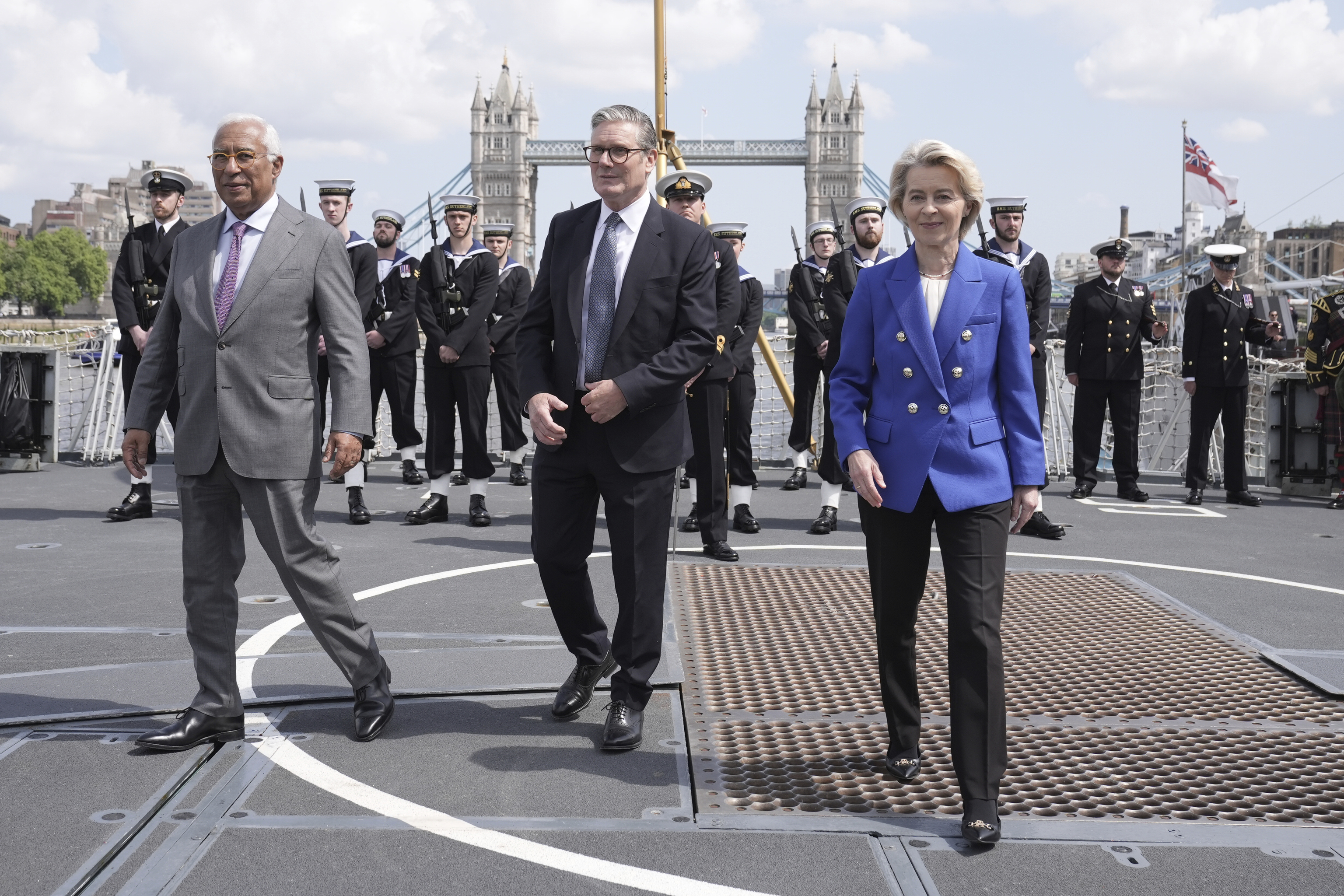The United Kingdom and the European Union have reached a framework agreement that marks the first approach between both since Brexit. The pact was staged by the British Prime Minister, Keir Starmer - who campaigned for a 'no' to his country's exit from the EU - and the President of the European Commission, Ursula von der Leyen, in a summit in London that sets the coordinates for collaboration between the UK and the EU in Defense and security, assistance to Ukraine, energy, development cooperation, movement of citizens, combating illegal immigration, fishing, and trade.
The "roadmap," as Von der Leyen described it, is ambitious, and although both parties have the political will to carry it out, the details are subject to all the uncertainties of negotiations among 28 countries - the UK and the 27 EU member states - plus a supranational organization - the EU - in a changing global scenario whose uncertainties - the U.S. disinterest in Europe, the threat from Russia, the war in Ukraine, and the rise of China - have precisely been the catalysts for the rapprochement.
The Commission President has hailed "the historic moment" that she believes represents an agreement with which "we are turning the page" on the Brexit trauma. The British Prime Minister has emphasized his domestic public opinion, insisting that "Great Britain is back on the world stage" with an agreement he described as a "victory for all" achieved by "an independent United Kingdom" that heralds "a new era."
For Starmer, it is essential to make it clear that he is not surrendering to Brussels, so as not to give more ammunition to an opposition that is already accusing him of doing so. The Conservative leader, Kemi Badenoch, has criticized him for "selling out" British fishermen with what is precisely the only concrete agreement, with figures and dates, reached this Monday.
As expected, the ultra-eurosceptic (perhaps we should say eurohostile) Nigel Farage, who leads the Reform Party, has been more aggressive, considering the authorization for the community fleet - mainly French - to have the same fishing quota as before Brexit as "an abject surrender, the end of the British fishing fleet". The Daily Telegraph, sympathetic to the Reform Party, described that agreement in apocalyptic terms, with headlines such as "Starmer gives in," "Starmer hands over British waters to the EU for twelve years," "Humiliation is just the beginning," and "Keir Starmer has reopened the wounds of Brexit."
Setting aside the rhetorical hyperboles of politicians, the agreement contains a series of provisions that still need to be developed in future negotiations, but they indicate a clear willingness from London and Brussels to strengthen relations, especially in defense and security, but also in people's transit, energy, combating illegal immigration, tariffs, and, of course, fishing and food trade.
This is the main course of the agreement, as it sets the path for the UK to participate in the emerging European defense system. The EU and the UK establish a Defense and Security Partnership that, according to British diplomatic sources, "fills a gap in the relationship". According to the London newspaper The Times, the new understanding could pave the way for British soldiers to participate in EU missions - whether peacekeeping or combat. However, the document only announces a series of regular high-level contacts between London and Brussels.
The text also opens the doors to something very important for the UK: the participation of its companies in the ¤150 billion credit program that the European Commission is preparing to finance Europe's rearmament in its projected SAFE instrument (Security Action for Europe, in English). However, the text is intentionally vague in this regard, merely stating that "the UK and the European Commission should thoroughly explore any mutually beneficial cooperation established by the SAFE instrument once it has been agreed upon."
All of this, in Von der Leyen's words, is "the first step towards the UK's participation in the defense procurement process," as well as promoting the integration of the British Armed Forces with their European counterparts.
As expected, London and Brussels are in complete harmony. The UK will participate with the EU in capital injections into the Ukrainian defense industry and also in the arms procurement system for the Kiev government.
The UK and the EU will create a visa system that allows under-30s to travel and work as before Brexit, when the UK, being in the EU, had free movement of people. However, the details are going to be complex. Although Von der Leyen mentioned a "Erasmus 'plus' for young people," referring to the student program, Starmer avoided giving a figure of the number of people who could benefit from that system. There are also doubts about the duration of these special visas. London would like them to be automatically extended until the person turns 30, while France insists that they only last a maximum of two years.
